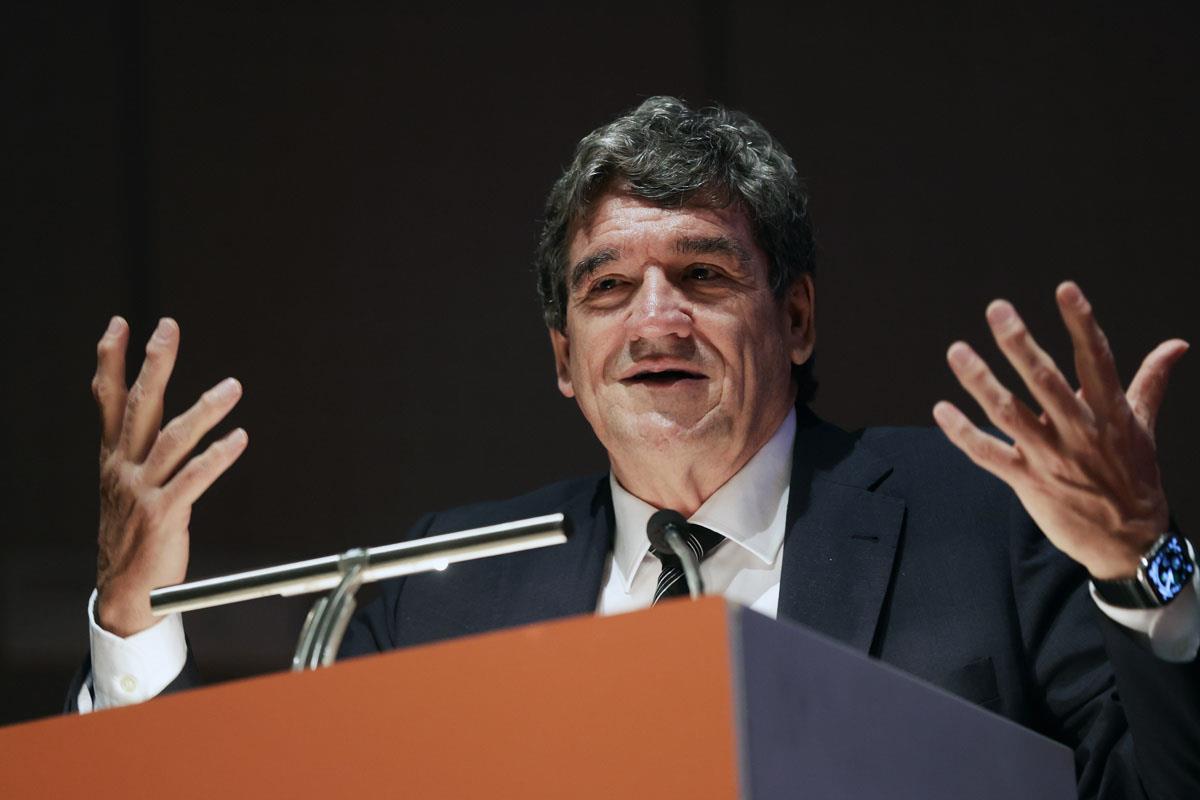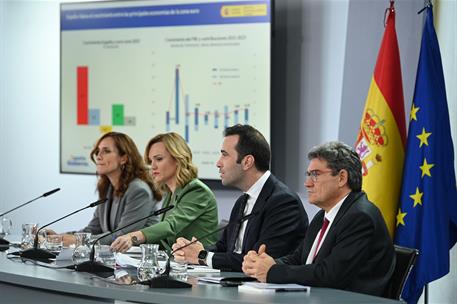Escrivá: "The Spanish Artificial Intelligence Oversight Agency is a pioneer in Europe and its functions are key to moving towards a reliable and ethical AI"
News - 2024.6.19
 José Luis Escrivá at the presentation ceremony of the Spanish Artificial Intelligence Oversight Agency (Agencia EFE)
José Luis Escrivá at the presentation ceremony of the Spanish Artificial Intelligence Oversight Agency (Agencia EFE)
During the presentation ceremony, in which the logo of the Spanish Agency for the Supervision of Artificial Intelligence was also unveiled, the two highlighted the timeliness of the entry into operation of this key institution for the governance of AI at a time when the evolution of this technology is showing its strong impact on productivity and economic growth, and in view of the imminent entry into force of the European Regulation on Artificial Intelligence and the recent approval of the Spanish Artificial Intelligence Strategy, which the Spanish Agency for the Supervision of Artificial Intelligence must implement.
The last few days have seen two important milestones in the launch of the Spanish Agency for the Supervision of Artificial Intelligence: the appointment of its director general, Ignasi Belda, and the signing of the agreement with the City Council of A Coruña for the transfer of the use of the emblematic La Terraza building, where the headquarters of the institution will be established once the work of fitting it out has been completed this summer. As Escrivá and Ledo indicated, further steps will also be taken in the coming weeks to staff the Spanish Agency for Artificial Intelligence Supervision and to establish relations with the national and international Artificial Intelligence ecosystem.
Functions of the Spanish Agency for Supervision of Artificial Intelligence
AESIA has five main missions. The first is to act as a think & do tank, anticipating trends, disseminating knowledge and stimulating social debate on the possibilities and limits of AI. The second is to carry out the tasks assigned to it by the European AI Regulation, supervising high-risk AI systems, coordinating supervision with market surveillance authorities, promoting standards and best practices and assessing AI models. The third is the coordination of the application of the Regulation with the European AI Office and the other national supervisory authorities in the EU to ensure its uniform application and its adaptation to technological and market changes.
AESIA's fourth role is to promote AI innovation in both the public and private sectors, facilitating regulatory compliance and developing best practices. In this respect, one of the institution's main tasks will be the development of sectoral sandboxes. And the fifth is to take part in the global debate on AI, intervening in the different multinational forums in which minimum planetary standards are established to avoid regulatory fragmentation, and advocating for reliable, responsible and humanistic AI, in line with the vision of this technology set out in the Spanish AI Strategy.
Next steps
In the coming weeks, recruitment of highly specialised AI professionals to fill AESIA's General Secretariat and Divisional Heads will begin. The staffing structure will then be approved and the selection process for civil servants and employees will begin, and a programme to recruit young talent for people who have recently completed their studies will be designed.
The director general will begin to establish relations with the relevant AI bodies in our country, in addition to taking part in international AI forums, such as the AI Council in Brussels, which is being held today and which Belda is already attending as director general of the Agency.
The working day in A Coruña and Santiago
In addition to the presentation of AESIA, Minister Escrivá completed his second day of work in A Coruña and Santiago de Compostela with the inauguration of the VII Spanish Computer Science Congress and a visit to the Singular Centre for Research in Intelligent Technologies at the University of Santiago de Compostela (CiTIUS), which has two university-industry chairs from the IA Chairs and Chip Chairs programmes.
Non official translation





